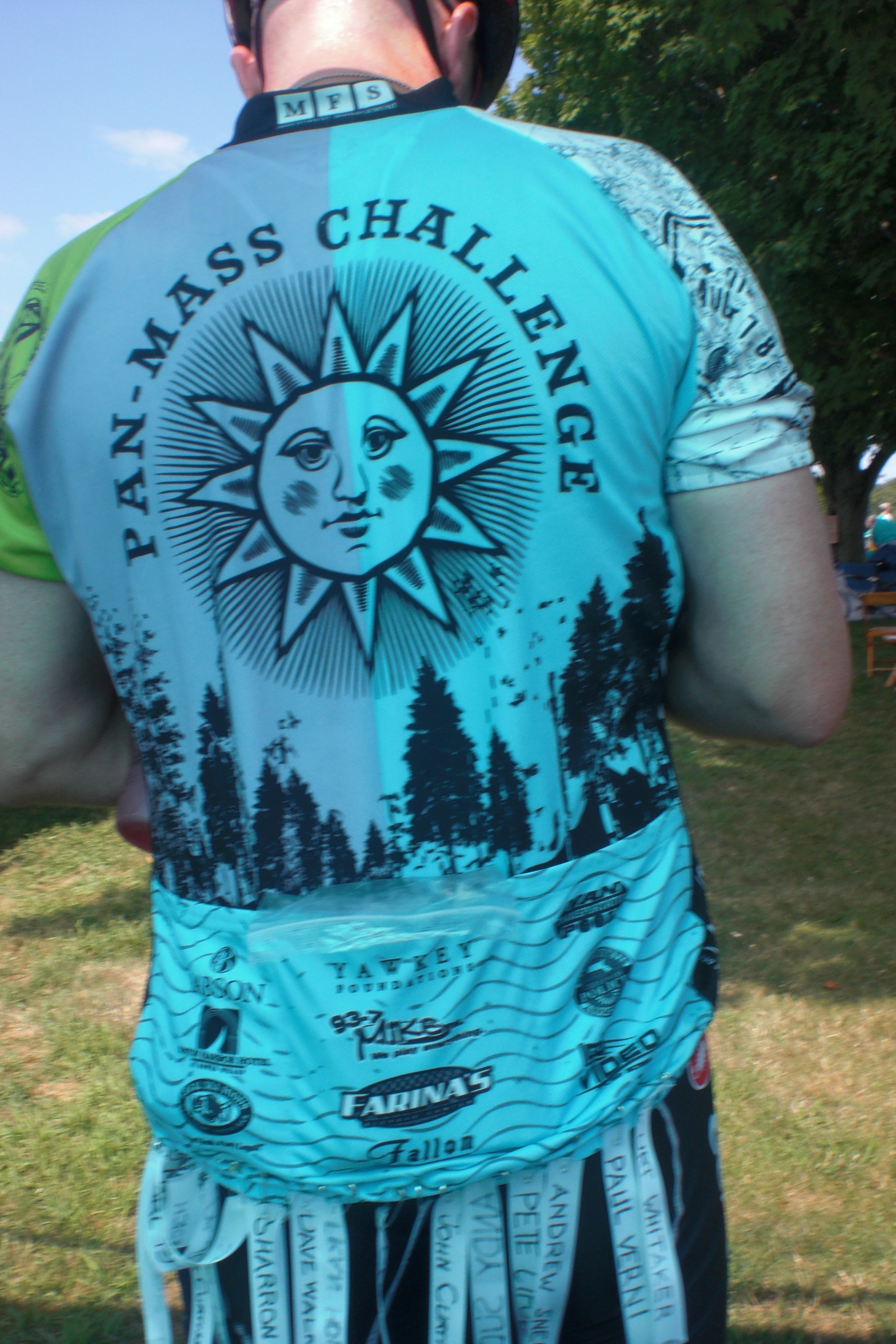By Billy Starr | August 5, 2006
Of all the lessons I've learned over the past 27 years of directing the Pan-Massachusetts Challenge, the most striking
is this: What people think will make them unhappy in fact makes them happy.
Take pain, discomfort, and inconvenience, for example. More than 4,300 cyclists who will bicycle up to 192 miles across
the Commonwealth today and tomorrow will suffer from burning quads, heat prostration, sore butts, and many other physical
maladies. They'll line up and wait to use public toilets. They'll sleep four to a dorm room with no air conditioning and little
ventilation, or in tents on a green. They'll arise at 4:30 a.m. for their first cup of coffee.
Why bother?
Participants in the Pan-Mass challenge come from 30 states and six countries to be part of something greater than themselves.
By raising money for cancer research with each mile they pedal, they will do something to lessen human suffering, even while
ensuring their own. In fact, it is this overcoming of physical challenges and hardships that brings the ultimate reward: the
satisfaction born of exhaustion.
Immediately after the first PMC in 1980, the feedback I received from the 36 cyclists who rode the 220 miles from Springfield
to Provincetown told me that I had tapped into something important. Although I had made about every mistake possible as an
event coordinator (everyone got lost and we ran out of food), those who rode felt they were a part of a greater cause. They
had become a part of a team working to raise money for the Jimmy Fund to aid cancer research and treatment.
Since then, athletic fund-raising has become a $1 billion industry and the PMC generates nearly 50 percent of the Jimmy
Fund's annual budget. The reason for the industry's growth is that the PMC -- and every other well-intended, sweat-equity
event -- allows people the opportunity to see and work outside themselves. There are few, if any, occasions for 7,000 people
(cyclists and volunteers) to work together as one big cog in the wheel of progress.
Every athletic fund-raising event capitalizes on the essential decency of the human condition, and that, as human beings,
one of our greatest needs is to contribute. The PMC gives some people a physical way to deal with their grief over the loss
of loved ones. It gives others an active way to fight when friends and family are battling cancer.
It helps them understand that we are all -- by choice or default -- a part of a larger community.
In 2007, for the first time in decades, cancer research funded by the National Cancer Institute will stand still. With
inflation and rising costs, cancer research will receive less government funding, which makes the PMC, and other athletic
fund-raising events like it, not just a good idea, but critically necessary.
One in 3 of us can expect to be afflicted with cancer. One thing we can all count on is that PMC cyclists will be on
the roads the first weekend of every August riding for all of us, rain or shine.
